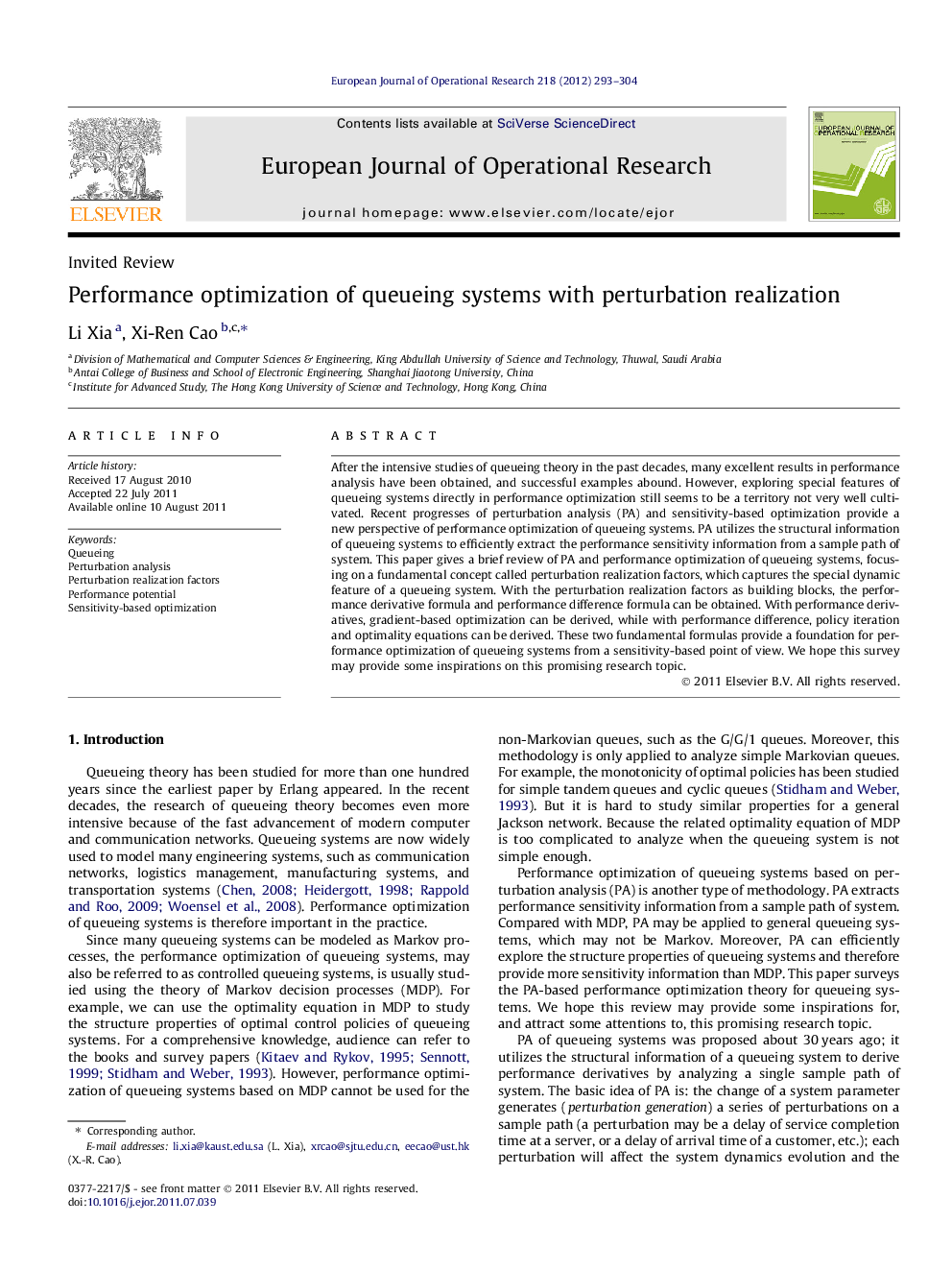| Article ID | Journal | Published Year | Pages | File Type |
|---|---|---|---|---|
| 476853 | European Journal of Operational Research | 2012 | 12 Pages |
After the intensive studies of queueing theory in the past decades, many excellent results in performance analysis have been obtained, and successful examples abound. However, exploring special features of queueing systems directly in performance optimization still seems to be a territory not very well cultivated. Recent progresses of perturbation analysis (PA) and sensitivity-based optimization provide a new perspective of performance optimization of queueing systems. PA utilizes the structural information of queueing systems to efficiently extract the performance sensitivity information from a sample path of system. This paper gives a brief review of PA and performance optimization of queueing systems, focusing on a fundamental concept called perturbation realization factors, which captures the special dynamic feature of a queueing system. With the perturbation realization factors as building blocks, the performance derivative formula and performance difference formula can be obtained. With performance derivatives, gradient-based optimization can be derived, while with performance difference, policy iteration and optimality equations can be derived. These two fundamental formulas provide a foundation for performance optimization of queueing systems from a sensitivity-based point of view. We hope this survey may provide some inspirations on this promising research topic.
► Perturbation realization factors capturing structural features of queueing systems. ► Performance difference and derivative formulas built on realization factors. ► Policy iteration and gradient based optimization derived from these two formulas. ► Efficient algorithms developed with no dynamic programming.
